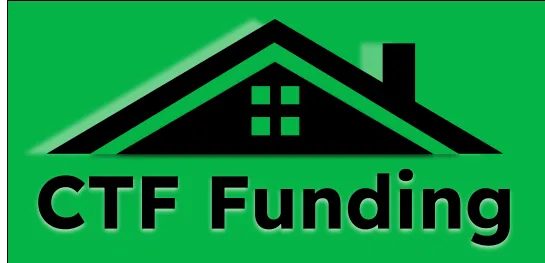| CALL US NOW!
Investing in People.
Investing in Properties.
CTF Funding is a private real estate lender headquartered in Savoy, Texas serving real estate investors around the country. Defined by an experienced team and innovative loan programs, CTF Funding is the ideal financing partner for real estate investors of all experience levels and specialties. Whether an investor is fixing and flipping, financing a cash-flowing rental, or building ground-up, we have a solution to fit those needs.
Loan Programs for Every Investment Strategy

No Compromise, Just Maximize
Investor Friendly Loans to by investors for investors.

FIX AND FLIP /HOLD LOANS
TWO GREAT OPTIONS
2 POINTS 10.75% INTEREST
OR
1 POINT 11.99% INTEREST ONLY
GENERAL TERMS
UP TO 70% LTV
UP TO 90% PURCHASE PRICE
100% OF REHAB
MINIMUM FICO 600
NO TAX RETURNS
NO BANK STATEMENTS

LONG TERM RENTAL LOANS
RATES FROM 4.99%
DSCR /RENTAL
NO RATIO OPTION
ACTUAL RENTS 12570 VS MARKET RENTS
857 PURCHASE
807 REFINANCE
3-4 WEEKS TO CLOSE
AIR BNB /.STR NO SEASONING
APPRAISAL REQUIRED
640 MIN. FICO

STABALIZED BRIDGE
RATES 10.75 OR 11.99
NO RENT REQUIREMENT
70% LTV
NO CASH OUT RESTRICTION
LOW ORIGINATION FEE
2-3 WEEKS TO CLOSE
APPRAISAL REQUIRED
FIND THE RIGHT LOAN FOR YOU
Loan Programs for Every Investment Strategy
Fixer-upper. Cash-flowing Rental. New Construction. Whatever your real estate investment strategy may be, CTF Funding has the perfect loan solution to meet your needs

FAST
Our lending process offers industry leading speed and efficiency to help investors win more deals and grow their business. With closings in as little as 48 hours.

SIMPLE
We’ve cut the underwriting red tape and simplified our lending process to avoid the headaches of traditional financing and allow investors to focus on closing their deal.
No Compromise, Just Maximize.
Because It’s Time To Seek Financial Advice From Experts
RELIABLE We take pride in being highly transparent and responsive when crafting your loan. We fund all of our loans per the terms agreed upon by our borrowers. No last-minute changes. No surprises.

Fix & Flip Guide
These are our rules to flip by. Request your free copy today!

DSCR Guide
Tired of Loans reporting on your Credit Profile, we have no reporting 30 year rental loans with rates that are the same or beat traditional financing.
Because It’s Time To Seek Financial Advice From Experts
We Are Here To Help You Get Your Financial Share Of The Pie
01
San Antonio Air Force Lieutenant Finds Investment Success using a Hard Money Loan.
02
California Nurse Completes First Flip Project in Record Time With the Help of a Hard Money Loan
03
Investor Changing the Face of Neighborhoods.
04
Aliquam Venen
FIX AND FLIP LOANS ARE AWSOME


© 2024-2025 CTF FUNDING ALL RIGHTS RESERVED
903-647-6036